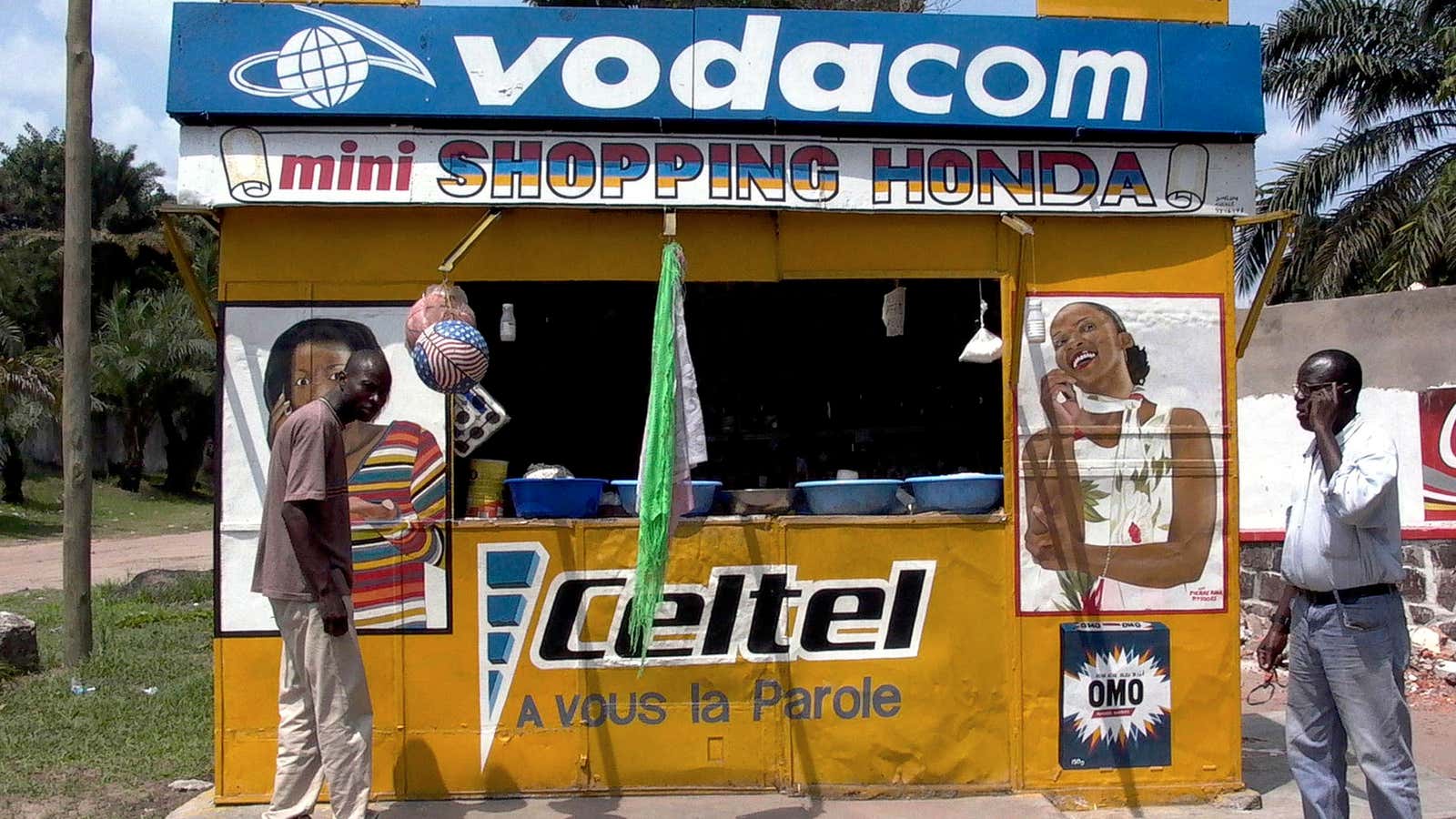In the recent past, many African countries have come up with even more ways to tax the digital sector, be it a social media tax in Uganda; proposals in Nigeria and Zimbabwe to tax Netflix, Google, YouTube, and Amazon; and rising mobile money taxes in several countries.
The Democratic Republic of Congo is also part of this growing list with rising criticism in the past few months against a tax that was put in place in 2020, to among other things, “fight against theft and counterfeiting of mobile terminals” according to the website by the Register of Mobile Devices, an agency established under the Post and Telecommunications Regulatory Authority (ARPTC.).
Finally, it seems as if there might be reprieve for Congolese who have been frustrated by this tax that many feel has no tangible benefits for them. Once a government decree made on Feb. 18 is implemented—ideally starting this month—Congolese will be safe from this tax.
The statement (pdf) reads, “this draft text is a response to the cries of distress of the Congolese people in the face of the withdrawal of their communication units and to the relevant recommendations of the National Assembly” (link in French.)
But what exactly was this tax anyway and how did it come about?
DRC’s Register of Mobile Devices (RAM) tax was a source of frustration for many
Each telephone user in the DRC must make a monthly payment depending on the type of device one uses. This cost comes to $0.17 per month for 2G phones and $1.17 for 3G/4G and above. This money is automatically taken out from phone credit or mobile money in each user’s phone. This amount isn’t negligible in a country where 73% of the population lives on less than $1.90 a day.
The tax is meant to be a deterrent to the theft of phones by preventing them from being reused, but all indications are that stolen phones make it back into the market.
There have been several protests by civil society groups, politicians, and citizens’ movements against the tax.
According to Mabela Jedidia a pro-democracy activist living in Kisangani in northern DRC and a major opponent of the tax, “I think that the RAM is simply theft organized by the Congolese state with the facilitation of telecommunications networks.” He has lost three phones to date since the tax was introduced and told Quartz, “When I lose my phone, I have no recourse. It’s absurd.”
There are however proponents of the tax. Jeff Kaleb, a former Congolese journalist who is now RAM’s ambassador to the media and the community says, “It’s a fee to stop the circulation and sale of counterfeit or stolen phones.”
As of December 2021, this tax had brought in about $266 million according to the Observatoire de la Dépense Publique (ODEP), a Congolese NGO (link in French,) with 40% going to public treasury, 30% to SC energy, the service provider, 25% to the ARPTC and 5% to the mobile communication companies.
The national deputy of Kinshasa, Daniel Mbau, is skeptical about this statement telling Quartz “This fee does not appear on any entry of funds into the state coffers according to our 2022 finance law adjusted at the level of the Economic and Financial Commission of the National Assembly.”
Sign up to the Quartz Africa Weekly Brief here for news and analysis on African business, tech and innovation in your inbox.
